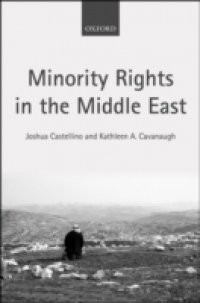Within the Middle East there are a wide range of minority groups outside the mainstream religious and ethnic culture. This book provides a detailed examination of their rights as minorities within this region, and their changing status throughout the twentieth and twenty-first centuries. The rights of minorities in the Middle East are subject to a range of legal frameworks, having developed in part from Islamic law, and in recent years subject to international humanrights law and institutional frameworks. The book examines the context in which minority rights operate within this conflicted region, investigating how minorities engage with (or are excluded from) various sites of power and how state practice in dealing with minorities (often ostensibly based onIslamic authority) intersects with and informs modern constitutionalism and international law. The book identifies who exactly can be classed as a minority group, analysing in detail the different religious and ethnic minorities across the region. The book also pays special attention to the plight of minorities who are spread between various states, often as the result of conflict. It assesses the applicable domestic legislative instruments within the three countries investigated as case studies: Iraq, Syria, and Lebanon, and highlights key domestic remedies that could serve as modelsfor ensuring greater social cohesion and greater inclusion of minorities in the political life of these countries.

